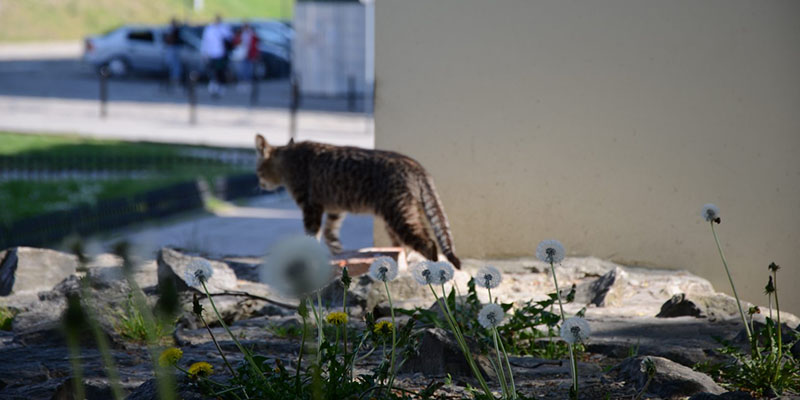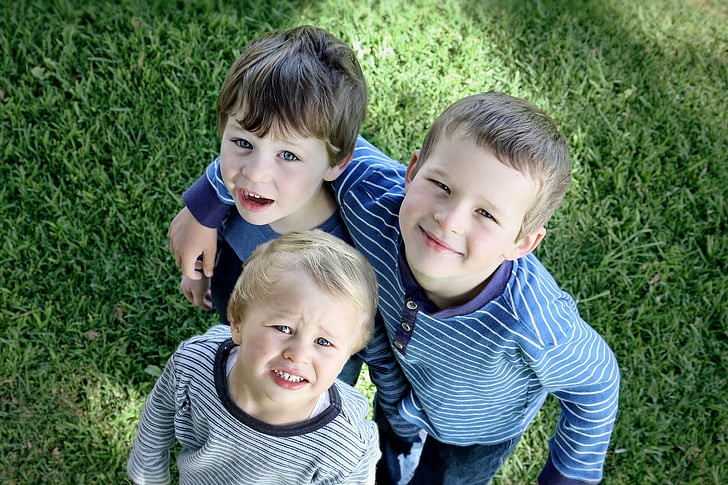11.3 Dative Case (Animate Masculine Nouns)

In this module, you will learn dative case endings for animate masculine singular nouns. You will practice recognizing and using these forms in constructions about age, sentences with indirect objects, and with the verb подобатися.
Завда́ння 1
Note how the bolded nouns in the dialogue change from the nominative to the dative case, the latter required in the construction about age.

– Так, це мої́ сини́: Тара́с, Васи́ль та Андрі́й.
– Чудо́ві хло́пці! А скі́льки їм ро́ків?
– Тарасо́ві шість ро́ків, Василе́ві – чоти́ри, а Андрі́єві – два.
Завда́ння 2
Obliging Danylo has a busy day ahead: he must complete a number of tasks, most of them favors for others. Read Danylo’s to-do list and mark for whom each task will be done.
Важли́во!
While inanimate masculine nouns generally take the endings -у or -ю in the dative case, animate masculine nouns generally take the endings -ові, -еві or -єві. Masculine nouns that end in -а or -я, such as соба́ка, Мико́ла, Ілля́, replace the final vowel with –і in dative.
Готе́лю вже два́дцять ро́ків.
Бра́тові три́дцять ро́ків.
Соба́ці вже де́в’ять ро́ків.
(Note the stem change in соба́ка!)
Завда́ння 3
Danylo’s mother also keeps busy with various tasks. To Danylo’s question Що ти ро́биш? she responds with the statements in the recording below. Select the most suitable ending for each of her statements paying attention to the meaning of the verb and the case form of each noun.
Transcript – Завдання 3
- Я телефоную…
- Я пишу…
- Я шукаю…
- Я допомагаю…
- Я викликаю…
- Я дзвоню…
- Я замовляю…
- Я даю сніданок…
Ціка́во!
While animate masculine nouns generally take the endings -ові, -еві or -єві in dative, when several animate masculine nouns in dative occur together, the animate endings are often alternated with the inanimate ones to break up the monotonous sequence. For example:
Ось лист Шевче́нку Оста́пові Миха́йловичу.
(Note that patronymics usually take the ending -у.)
До́кторові Круку́ вже сімдеся́т ро́ків.
Завда́ння 4
Fill in the blanks with the correct names of famous people from the bank to complete sentences about their various achievements.

1.

2.

3.

4.
Важли́во!
To say that somebody likes someone or something, Ukrainian uses a special construction with the verb подобатися. The noun indicating the person who likes must be in the dative case, whereas the object being liked is in the nominative case:
Оста́пові подо́бається Яри́на. – Ostap likes Yaryna.
(Literally: To Ostap Yaryna is pleasing.)
Note that the word order in such sentences is flexible: they can begin either with the person doing the liking or with who/what is being liked:
Оста́пові подо́бається Яри́на. = Яри́на подо́бається Оста́пові.
The only way to determine who likes whom in such sentences is to play close attention to the case forms!
Завда́ння 5
Select the best caption for each picture.
Завда́ння 6
Read the sentences below to figure out who likes and dislikes whom. Based on this information, create a list of dancing partners by matching up individuals who like each other.
- Марко́ві подо́бається Оле́на.
- Володя не подобається Насті.
- Макси́мові подо́бається На́стя.
- Андрі́єві подо́бається О́льга.
- Сашко́ подо́бається О́льзі.
- Володі не подобається Настя.
- Оле́ні подо́бається Марко́.
- Андрі́й подо́бається Софі́ї.
- О́льзі не подо́бається Воло́дя.
- О́льга подо́бається Сашко́ві.
- Макси́м подо́бається На́сті.
- Софі́я подо́бається Андрі́єві.
Завда́ння 7
You will hear eight unfinished sentences about somebody liking or disliking someone else. Choose the correct ending for each sentence. Then answer the questions below.
Transcript – Завдання 7
- Сусідові подобається…
- Студентові подобається…
- Ця акторка дуже подобається…
- Собаці подобається…
- Той хлопець подобається…
- Юристові подобається…
- Клієнтові не подобається…
- Новий сусід не подобається…
Мо́вний пазл
А тепе́р тест!
Read the dialogue and type in the words from the bank below in their correct forms:
тато | Юрій Павлович | сестра | правнук (great-grandson) | дідусь | Петрик | дідусь

